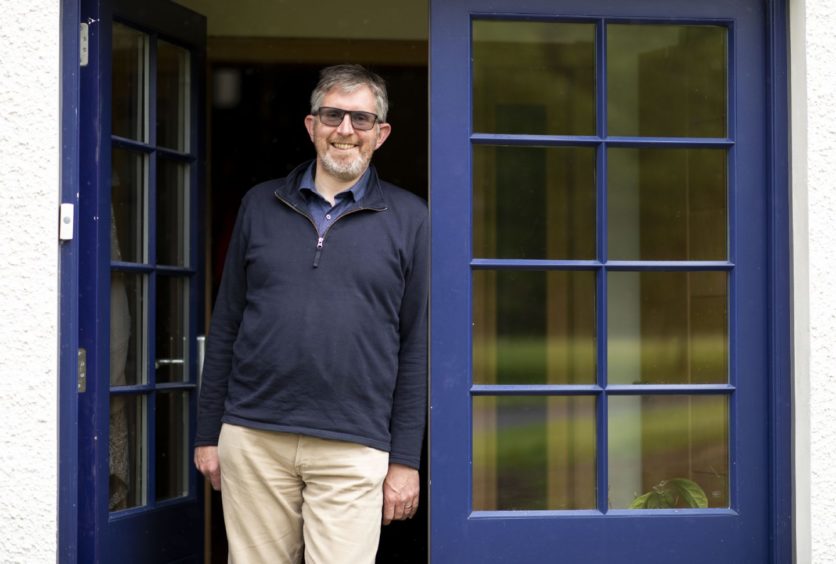
The evidence given to the Covid-19 Inquiry by Scotland’s top medic has been called into question after he claimed Nicola Sturgeon was right to impose harsher lockdowns.
In a bruising week for the former First Minister, her WhatsApp exchanges and Cabinet documents have revealed that the push for independence and causing political rows with Boris Johnson, UK Prime Minister at that time, were a feature of the Scottish Government’s pandemic response.
But Chief Medical Officer Sir Gregor Smith insisted on Monday that Scots had to spend longer in lockdown for their own good. He told the inquiry Sturgeon was acting to protect a population that is older than in England and Wales, and which suffers from higher rates of multimorbidity – where people have more than one condition. Smith insisted: “It is my view that the differences in approach between UK nations were in part influenced by clinical and demographic considerations.”
However, The Sunday Post can reveal that research tells a different story. In fact, Scotland has less multimorbidity than either England or Wales – and the latter has an older population too.
This week, under questioning from Jamie Dawson KC, Smith justified Scotland’s hardline approach.
He said: “Scotland does have an older population than other parts of the UK, and we knew even by this stage that it was very clear that older groups of people were at greater risk from the effects of the coronavirus. But not only is it an older population, it’s a sicker population, for many reasons, but the development of what we call multimorbidity is more evident in Scotland than in other parts.”
But, last year, experts who provide guidance to the health service in England and Wales gathered together evidence on multimorbidity. The National Institute for Health and Clinical Excellence found it affected 23.2% of Scots but 27.2% in England. And a recent study by Edinburgh University estimated the rate at up to 32.2% in Wales.
Wales also has the oldest population, with 22% aged 65 or over, Scotland on 20% and England 18%.
Now Sturgeon has been accused of using the pandemic to create differences between Scotland and the rest of the UK and further the independence cause.
The inquiry uncovered a Cabinet document from that summer showing SNP ministers had agreed “consideration should be given to restarting work on independence and a referendum, with the arguments reflecting the experience of the coronavirus crisis and developments on EU Exit”.
It also emerged at the inquiry this week that Sturgeon referred to Johnson as a “f***ing clown” over his handling of this chapter of the pandemic in messages with her aide Liz Lloyd. In a conversation deleted by Sturgeon, the official said they should consider creating a “purely political” row by demanding fresh furlough payments, adding: “Think I just want a good old-fashioned rammy so can think about something other than sick people.”
Sturgeon replied: “Yeah, I get it. And it might be worth doing.”
Last night, critics said the Scottish Government’s reasoning for longer lockdowns was now threadbare.
Scottish Conservative chairman Craig Hoy said: “It’s difficult for Gregor Smith to justify a different clinical approach in Scotland when the data supporting it is so weak. Instead, Liz Lloyd’s messages suggest the different approach was driven by a desire to be different to the rest of the UK and to start a ‘rammy’ with the UK Government.
“The SNP’s Covid strategy prioritised spin and constitutional grievance over saving lives; the public will rightly be outraged. It is clear both Nicola Sturgeon and Humza Yousaf have to explain their wholly inappropriate conduct.”
Scottish LibDem leader Alex Cole-Hamilton said: “By keeping the decision-making circle so tight, Nicola Sturgeon ran the risk of making key errors with no one there to correct them or allowing political animus to cloud her judgment.
“There are huge questions for her to answer at the inquiry next week.”
Edinburgh University professor Mark Woolhouse told the inquiry this week he was mystified about why Scots had to endure greater restrictions than other parts of the UK. The epidemiologist said: “I didn’t understand the strategy over the summer of 2020. The emphasis was on a very, very cautious relaxation from lockdown, and it seemed to be important to the politicians that it was more cautious than England, so they were emphasising that.”
The Scottish Government said: “Learning lessons from the pandemic is vital to prepare for the future.
“It would be inappropriate to comment on the detail of evidence being considered by the UK Covid inquiry while hearings are ongoing.”
Learning lessons will help prepare us for the future, urges survivor
By Janet Boyle
A leading Scottish dentist who was ordered back to work at the start of the Covid-19 pandemic is urging the Scottish and UK governments to learn lessons from both inquiries.
Professor Grant McIntyre, consultant orthodontist and former clinical director at NHS Tayside, was worried about the serious risk to his staff and himself as Covid was soaring in the UK but was urged to keep on working to avoid patient waiting lists growing. Shortly afterwards, he became so ill from the virus he spent 50 days in an induced coma fighting for his life.
“I would like both the Scottish and UK governments to learn lessons and adopt more robust guidelines for future pandemics,” he said. “Covid has probably taken years off my life expectancy, but I have accepted this and I am hugely grateful to the immense dedication of the NHS staff who worked tirelessly for months to save me and then help in my recuperation.
“We all must work to prevent this ever happening to health and other frontline professionals again.
“My wife and family were told several times to prepare for my death but continued to believe I would survive.”
At that point his CT scans were considered incompatible with life. It was not until March 23 2020 that Scotland’s Chief Dental Officer for Scotland closed all routine dental care.
“I do not feel bitter, but I feel very strongly that lessons must be learned to protect healthcare professionals and other frontline workers in future epidemics and pandemics,” McIntyre said. “The UK and Scottish governments did not seem to listen to our fears that people on the frontline were at serious risk.”
McIntyre, 53, described how he was worried about protecting his staff amid the patient-facing job of dentistry. “Many dentists expressed our fears for the health of dental professionals as the first wave of the pandemic emerged but were urged to continue working as normal,” he said.
“We could see how infectious Covid was by watching reports from other countries and I was aware that it could be fatal.
“I could not have imagined what lay ahead for me but I was one of hundreds of NHS workers who became seriously ill. Sadly, others did not survive.”
His personal battle to recover included physiotherapy, speech therapy, occupational therapy – and the huge will to get back to his family and his patients.
“Today my breathing function can best be described as having one-and-a-half lungs and, although this aspect has improved since leaving hospital in 2020, no further recovery is expected,” he said. “I am four years on from Covid and remain keen to help patients through my work in dentistry and of course be a good husband and father.
“I am only one of many survivors who worked hard to recover, but always take time to recall all of the families who lost loved ones.”
Today his job involves training the next generation of dentist specialists.
His book, Dying To Live: The Remarkable True Story Of Scotland’s Sickest Survivor of Covid-19, was part of his emotional recovery.

Enjoy the convenience of having The Sunday Post delivered as a digital ePaper straight to your smartphone, tablet or computer.
Subscribe for only £5.49 a month and enjoy all the benefits of the printed paper as a digital replica.
Subscribe © Jamie Williamson
© Jamie Williamson